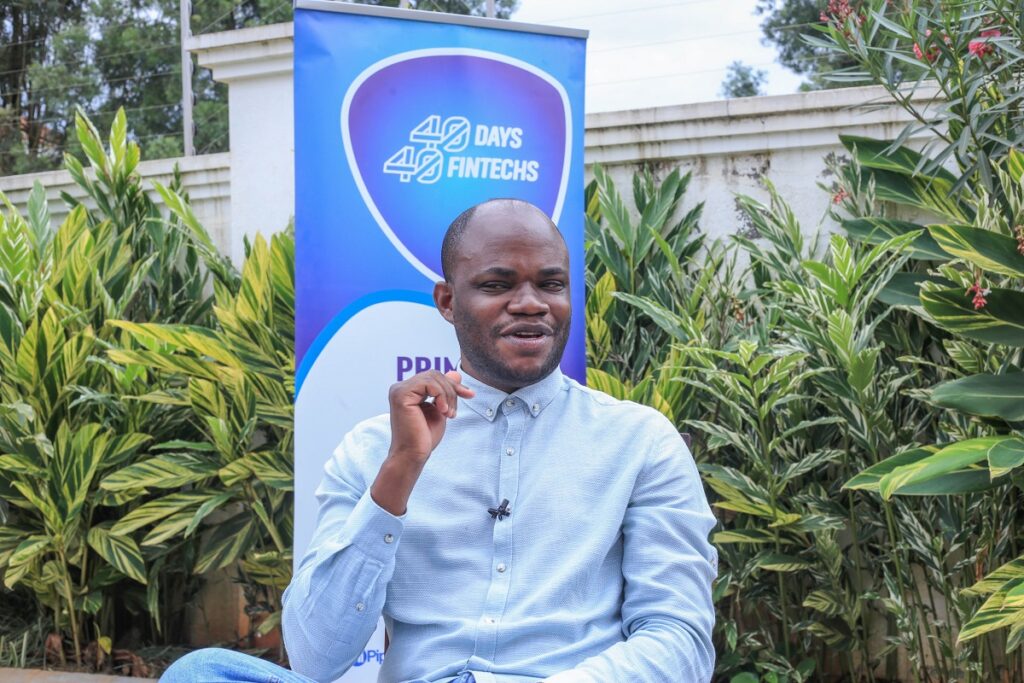Pocket money in form of cash in school is set to become history, following a new innovation that seeks to have it stored in electronic wallets. Dubbed Pebuu School Product, the innovation by Pebuu Limited, a Financial Technology Company (FinTech) enables students, parents, or guardians, to deposit pocket money in electronic wallets which they can access using their thumbprint or a unique number at the nearest agent.
The innovation will also help control the spread of the COVID-19 pandemic in schools, given that cash is one of the channels through which the virus spreads. The product, according to John Paul Semyalo, the company’s Chief Executive Officer, has been piloted in a number of schools and works well.
Pebuu Limited, a women-centric brand, uses agents, who are spread across the country, to serve its customers.
Semyalo notes that the firm, which trades as Pebuu Africa, has 2,400 merchants countrywide, with 80% of them using Point-Of-Sale (POS) machines while 20% use a mobile app on their smartphones.
Pebuu partnered with telecommunications companies – MTN, Airtel, Africell, and Uganda Telecom Limited (UTL) to distribute their products – mobile money, airtime, data, Over the Top Tax, and other services, through its platform.
The FinTech started off with four agents five years ago, carrying only carrying airtime as telecoms were at first adamant about onboarding any FinTech for mobile money and the other services.
It is also partnering with banks, with three of them – Stanbic, GT Bank, and Centenary, already on board, according to Semyalo, who adds that they are in advance stages of on-boarding other banks onto the platform.
“When you visit a Pebuu agent, you are able to cash in or cash out mobile money, pay your bills or do banking at the lowest cost possible,” Semyalo says.
Pebuu, which is among the firms taking part in the second edition of the 40-Days 40-FinTechs initiative, also has a Pebuu Care product, a micro-credit solution that focuses on women and youth. The product enables agents to borrow money in real-time and pay back the loan in 24 hours or 30 days.
Commenting about the 40 Days 40 FinTechs, Semyalo said: “It is a great initiative; it brings together the different FinTechs to share ideas and the one unique thing is that it opens up the Ugandan FinTechs to the global space. So through this HiPipo spearheaded initiative, local FinTechs are promoted globally, which creates visibility for us so that when we decide to go out there and look for global partnerships, in form of grants, equity or low-interest financing, it becomes easy.”
The 40-Days 40-FinTechs initiative is organized by HiPipo in partnership with Crosslake Technologies, ModusBox, and Mojaloop Foundation, and sponsored by the Gates Foundation.
The initiative provides a platform for FinTechs and stakeholders in the digital and financial technology space to exhibit their products and share ideas.
Semyalo explains that the firm uses Level One Project principles such as Know-Your-Customer (KYC) and real-time settlement, which he says are key for competitiveness.
The HiPipo Chief Executive Officer Innocent Kawooya notes that the 40-Days 40-FinTech project seeks to boost the African FinTech ecosystem to enable innovators to enjoy sustainable profitability to help them design and deploy affordable and inclusive financial services for the poor.
He alludes that FinTech in Africa offers attractive opportunities and that investors are rightfully picking interest in the various startups that are offering a plethora of services, ranging from payments and lending, remittances, cross-border transfers, and neobanks, among others.
“Each of these services solves unique sets of challenges and that is why we have this initiative because we want to contribute towards solving the unique challenges that the everyday person faces.”
Challenges
However, Semyalo notes that while the FinTech space in Uganda has evolved over the last five years, it is still quite hard and tough as most FinTechs are still grappling with liquidity challenges.
“For you to survive in the FinTech space, you must have liquidity/cash; you must be aggressive, must be frugal, daring, and brave,” he says, adding that those that will benefit are only those that will be resilient to celebrate their 10th birthday.
Semyalo is, however, optimistic that regulating the industry will eliminate the unfair tendencies in the market y and level the playing ground for all players, which will, in turn, make the industry profitable.
Read About: Xente is facilitating digital payments for businesses

